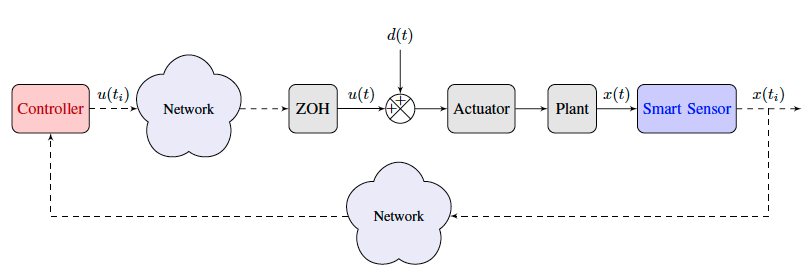A Survey on Event-Triggered Sliding Mode Control
Authors: Abhisek K. Behera; Bijnan Bandyopadhyay; Michele Cucuzzella; Antonella Ferrara and Xinghuo Yu
Extended Abstract:
Event-triggered control (ETC) is a novel strategy for designing controllers for sampled-data systems. Here, by incorporating an event condition in the feedback loop, the data transmission is regulated over the network subject to the satisfactory response of the closed-loop system. Under this feedback constraint, the ETCs have shown promising results, even in the presence of uncertainties/disturbances. Sliding mode control (SMC) is an effective tool for uncertain systems guaranteeing robust performance.

In the past decade, many results were reported on the design of event-triggered SMC, which can handle both feedback constraint and disturbance effect. Indeed, a new sliding motion is obtained, known as the practical sliding mode, in which any arbitrary bound for the sliding function can be achieved by appropriately designing the event condition. This paper catalogues almost all developments in event-triggered SMC, from its initial proposal to various applications till the appearance of this paper. We give an overview of the design of classical SMC for both linear and nonlinear systems in the event-triggering framework. The different event-triggering conditions are covered with emphasis on their respective advantages. Some discussion is also presented on the higher-order SMC. The wide application of this technique for power systems, power electronic systems, and multi-agent systems are presented. Yet, many avenues are still there for future investigations, which are also found in the paper.

